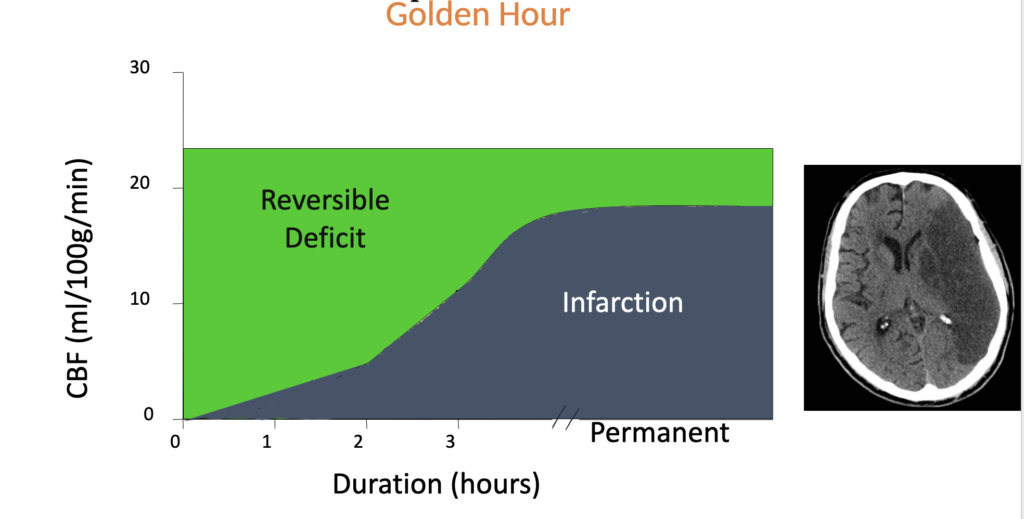
The Golden Hour is a term used in emergency medicine that refers to the first 60
minutes after the onset of a stroke—a period that is absolutely crucial for saving a life and minimizing
long-term disability. When it comes to strokes, every second matters. Acting quickly during this window
can drastically improve a patient’s chances of survival and recovery.
A stroke happens when the blood flow to a part of the brain is interrupted or reduced, depriving brain
tissue of oxygen and nutrients. Within minutes, brain cells begin to die. There are two main types of
strokes: ischemic stroke, caused by a blockage in an artery supplying blood to the brain, and
hemorrhagic stroke, caused by bleeding in the brain. The ischemic type is more common and
highly responsive to immediate treatment if detected early enough.
Why is the first hour—the “Golden Hour”—so critical?
Because some treatments, especially for ischemic strokes, are only effective if administered within a
narrow timeframe. A medication known as a thrombolytic or “clot-buster” can dissolve the blood
clot and restore blood flow to the brain—but this drug must be given within 3 to 4.5 hours of the stroke
onset. The sooner it's given, the better the chances of recovery. Ideally, it should be administered
during the first hour, making it truly “golden.”
Studies show that for every minute a stroke goes untreated, the brain loses nearly 2 million neurons.
Over the course of an hour, the damage is equivalent to nearly 3.6 years of normal aging in the brain.
That's why acting fast is so important. Any delay in treatment can lead to irreversible damage,
disability, or death.
At Brainline, we aim to raise awareness about the importance of the Golden Hour. One of our key
educational tools is the BEDFFASTT acronym, which helps
people recognize the early signs of stroke:
Recognizing these symptoms and responding immediately can save lives. If you observe even one of these
signs, do not wait. Call your local emergency number right away and get the person to a hospital
that is equipped to handle stroke cases.
Public awareness is essential. Many people ignore the early signs of a stroke or wait
for the symptoms to go away on their own. Unfortunately, this hesitation can be fatal. The Golden Hour
is not just a medical term—it is a call to action. The goal is to reduce delays in getting care and to
educate the community so that everyone knows what to do in case of a stroke.
Every second counts. The brain is one of the most delicate and vital organs, and unlike other parts of
the body, it doesn’t regenerate lost cells. That’s why the damage from a stroke can be permanent and
life-altering. However, with quick and proper action, stroke victims can regain much of their lost
function and lead fulfilling lives.
“Time lost is brain lost.” Make sure you, your family, and your community understand the power
of the Golden Hour. Recognize the signs, act without delay, and be a part of saving a life when it
matters most.